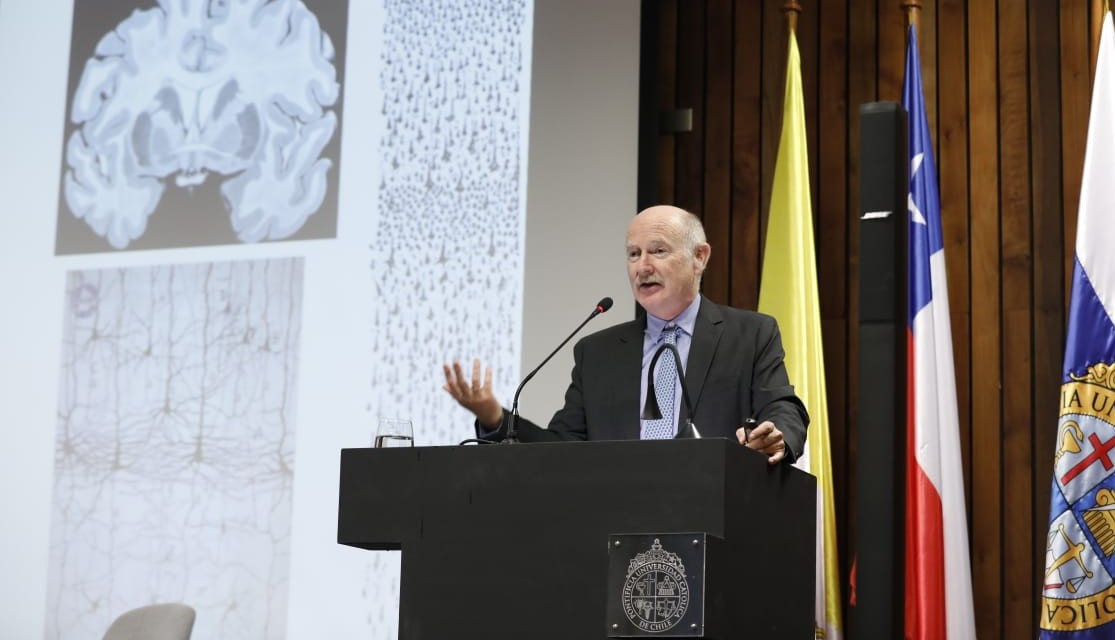Computers Accessing Human Brain: Columbia Neuroscientist Calls for Regulation

Rafael Yuste, Professor of Biological Sciences and Neuroscience at Columbia University, is working with Chile’s congress in presenting a constitutional reform that establishes neuro-rights as a new human right.
If put into law, it would make Chile the first country worldwide that regulates and protects data that could be extracted from the human brain, in order for the data to be used for altruistic purposes only.
Yuste – who is an expert on the structure and function of cortical circuits, the biophysical properties of dendritic spines and the pathophysiology of epilepsy – is working to decipher and be able to manipulate human thought. He estimates that decoding human neuronal activity will be possible in 15-20 years.
"This is not science fiction, these neurotechnology tools are routinely used in experiments with laboratory animals and we can already alter the behavior of a mouse using lasers to activate a group of neurons and implant images in its brain that it has not seen," Yuste told press during a visit to Chile at the beginning of October.
However, having neurotechnology capable of putting together what he calls a “dictionary of mental patterns” and being able to access human thoughts, emotions, feelings and memories, poses significant ethical challenges. In an altruistic sense, the technology could be used to help prevent suicide, cure mental illness and treat neurodegenerative disease such as Parkinson's or Alzheimer's. However this technology could be a Pandora’s Box if incorrectly used for economic, political or military purposes.
“The elections in the US or Brexit in England, which were marred by the handling of data collected by Cambridge Analytica, are a drop in the bucket when considering what could be done with these technologies,” Chilean press quoted Senator Guido Girardi, president of the Challenges of the Future Senate Committee and principal backer of the bill, as saying.
It is because of this that Yuste, along with the top neuroscientists grouped under the BRAIN (Brain Research through Advancing Innovative Neurotechnologies) Initiative, have called for the urgent regulation of neurotechnological development. BRAIN, led by Yuste, was launched by then-President Barak Obama in 2013 to focus on creating a treasure trove of information on all 100 billion neurons of the human brain to gain greater understanding of neural dynamics and function.
“We are completely unprotected in this situation because there is no legislation in any country in the world where the possibility of such interventions is considered,” Yuste said. “I am here to promote the bill and the constitutional amendment for Chile to become the first country in the world to regulate the conditions under which these technologies can be used.”
Yuste and team have proposed five fundamental rights with respect to neurotechnology:
- Mental privacy: The data obtained from the brain should be treated with the same legal rigor as if it were an organ of the body. Nobody’s neurodata should be used without their consent.
- Personal integrity: Maintain the integrity of each person under a brain-computer interface, preserving the right to personal identity.
- Free will: Being exposed to machine algorithms with direct connection to the human brain poses a risk to a person’s ability to decide.
- Equitable and equal access: Neurotechnologies will allow people to boost cognitive processes. Basing access decisions on economic or political principles could cause social inequality.
- Protection against biases: The technologies, especially if powered by artificial intelligence, may come with certain biases. It is important that these biases do not enter the brain and affect people’s decision-making capacity.
Use this link to read Yuste’s reflections on the origins of the BRAIN initiative.
And this link for information on Yuste’s laboratory.